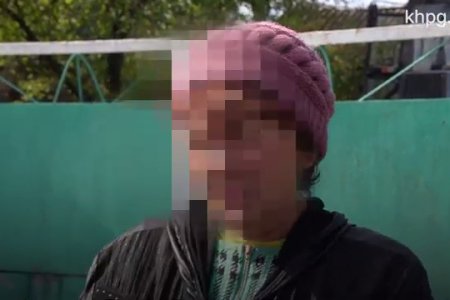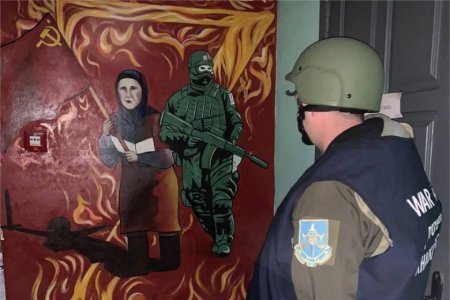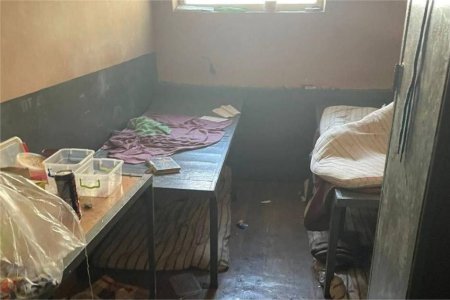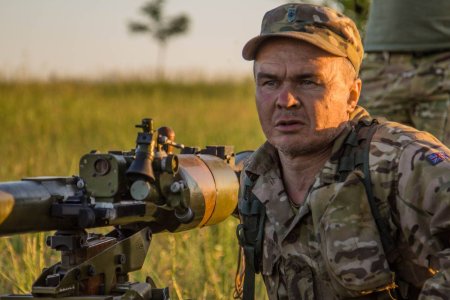Have you ever thought that Russia could invade Ukraine?
We never thought about it! We thought it was unreal. We thought they wouldn’t get past the Belarusian swamps and our roads, but it didn’t help...
Have you prepared an emergency kit?
I still had my emergency kit from my previous work in the fire brigade. But we prepared our basement: we put up a cot there, got some candles, water, etc...
What was the first day of Russia’s invasion of Ukraine like?
The first day was very noisy because there were a lot of Russian military vehicles nearby. They were going in the direction of Borodianka and Hostomel (small towns in Kyiv Region). We heard a constant hum throughout the whole day!
What exactly did you do on the first day of the war?
We all watched the Russians. We noted how many of them were coming, what kind of equipment and vehicles they had. We also called our friends and told them that convoys of vehicles were coming.
How did the war affect you personally?
Every day the orcs (Ukrainians call russian soldiers “orc(s)” сomparing them with monsters from “Lord of the Rings”) came to my house and checked on me. They drove through the streets, came into houses, checked if there was a sniper in the house, if there were any strangers. They also came into people’s houses and openely stole things they liked.
Have you seen the Russian military committing crimes against civilians?
They (Russian troops) shot at my neighbours’ house. They shot under people’s feet, one man was shot in the leg. They shot whoever and wherever they wanted. The Russians stole everything in the neighbour’s house. Another neighbour still has broken fingers. The orcs broke them because they found a pneumatic gun in his house. They also put him on the ground, undressed him, checked if he had any tattoos (which could show that he supported Ukraine or the Ukrainian army). They did whatever they wanted.
How did you communicate with the Russian military?
Through clenched teeth and reluctantly. If I could, or if I had a weapon, I would have damaged their vehicles. But they had weapons, so that was their so-called argument. What could you talk about with people like them?
When the Russians came to your house, what did they do?
Every day they came to check my house. It happened every day. As they went around, they stole whatever they wanted. They stole my money too.
What happened to you during the occupation?
Nobody left houses for about a week. There was no one in the streets. If someone went out, they (Russian troops) would catch, undress and beat them.
Where did you get food?
After the invasion, I started doing humanitarian work. I evacuated people from Dymer to Demydiv, carried food from there and brought it to Dymer. Thus I had something to eat.
How did the Russians react to your humanitarian work?
They let us do it through clenched teeth but we had to pay them with cigarettes. They let us cross the bridge for a carton of cigarettes. It was a kind of a trade with them. So, they took the cigarettes, but said they couldn´t guarantee our safety. And on March 28, 2022 I was arrested because of my humanitarian work. My neighbour informed on me, saying that I was allegedly making money from humanitarian aid. They (Russian troops) searched the whole house for food. Even their “special services” came to my house: two groups of men dressed in black and green uniforms.
How exactly were you detained by the Russian military?
I was riding a bicycle to Dymer to find out if the humanitarian aid had arrived. I was stopped in Sadova Street by an armoured personnel carrier. They tied my hands and eyes, and threw me into their vehicle. They took me home and searched my house. I sat in their vehicle, while they were searching my house for two hours. And then they took me somewhere and left me in an unknown place... There were already 30 people and none of us knew where we were. Some of them were later released but since then they are still missing...
First, they hit me with a rifle butt. Then they started shooting near my head and legs. They asked me about our soldiers, about AFU (the Armed Forces of Ukraine) positions, etc. I told them that I was only doing humanitarian work. I didn’t know anything else. On the third day I was beaten, one of them (the Russians) told me that if I stopped doing humanitarian work, they would leave me alone. I lay there for another day, and later, when they (the Russians) were bombed by our army, the Russians just ran away. The guard let us out. I went home and rested for three days. Then I started doing humanitarian work again.
During the occupation?
Of course! I didn’t give up.
Why did the Russian military arrest civilians?
Well, someone was arrested for simply walking and talking on the phone. Two men were arrested, accused of delivering some weapons. They were tortured very badly. All of us who were in the basement at the time heard their screams. They were from Yasnohorodka (village in Kyiv Region), their names were Kostia Farion and Petro. The Russians knocked their teeth out and broke their ribs. They also used stun guns to torture them.
Are you aware of any cases of civilians being killed by the Russian military?
I don’t know of any killings. But there are about 20 people who have gone missing since then.
What happened to the neighbour who informed on you to the Russians?
She left with them. When they (Russian troops) fled, they provided a bus for everyone who wanted to leave, so they all fled to Belarus.
Tell us how you stole a fuel truck from the Russian military.
Once, a neighbour came to me and said that she had seen a damaged fuel truck on the Katiuzhanska Road. I used to drive such type of vehicles, so I suggested that we go and check it out. To cut a long story short, we took the truck to a secret place, covered it up and put a “Danger! Mines!” sign nearby. We drained the fuel and delivered it to the hospital and to the nursing home — to everyone who needed it. I wanted to burn the truck first but then I thought it would be better to put it to good use. And now this truck is being used in the 72nd Brigade of the Armed Forces of Ukraine.
Did all of this happen during the occupation?
Yes!
Why didn’t you evacuate? Was it possible?
I evacuated people, so I could leave any day as well. But I had my house and my dogs. How could I leave them? I would never leave my pets but I couldn’t take them with me, they are afraid of people...
Has your attitude towards Russia and Russians changed?
I served with Russians in the Soviet army. I had friends among them... But if they (Russian troops) come back, I will make sure they get a “warm” welcome. I still have some of their fuel from that truck, so it will be a chance to give it back to them, so to speak. Believe me, they will not like it.
What did you feel when AFU liberated your village?
Oh, we were all so happy! We celebrated, took off the white Russian flags from the buildings and shouted “freedom”!
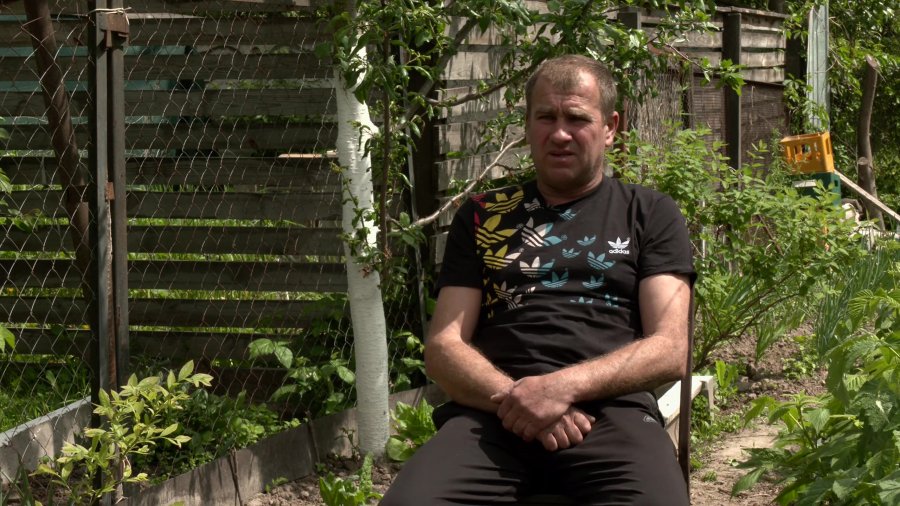
Translation: International Society for Human Rights (German Section)
 The article was prepared by the Kharkiv Human Rights Protection Group with the support of the "
The article was prepared by the Kharkiv Human Rights Protection Group with the support of the "